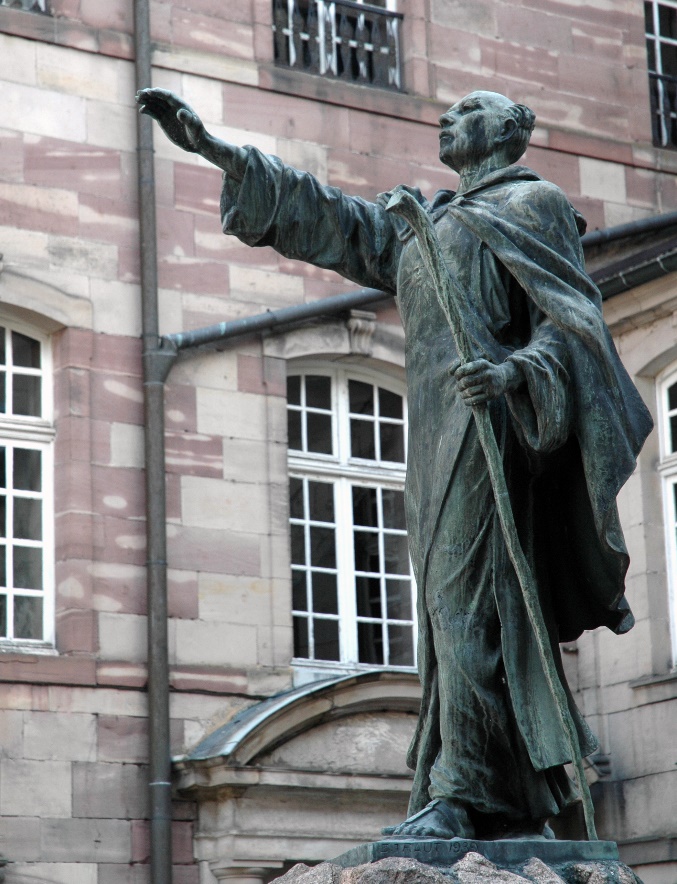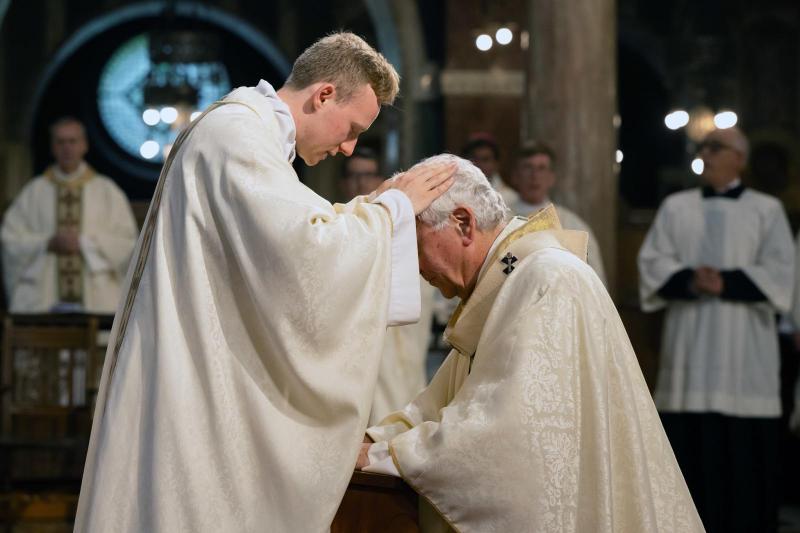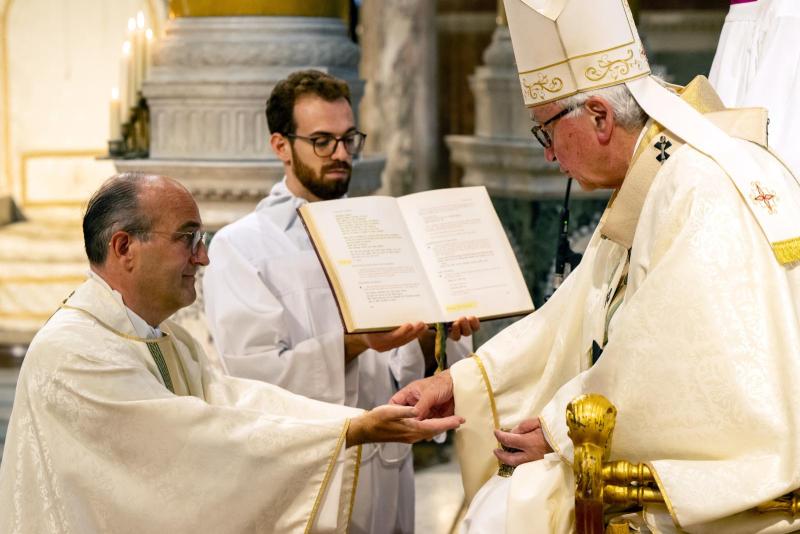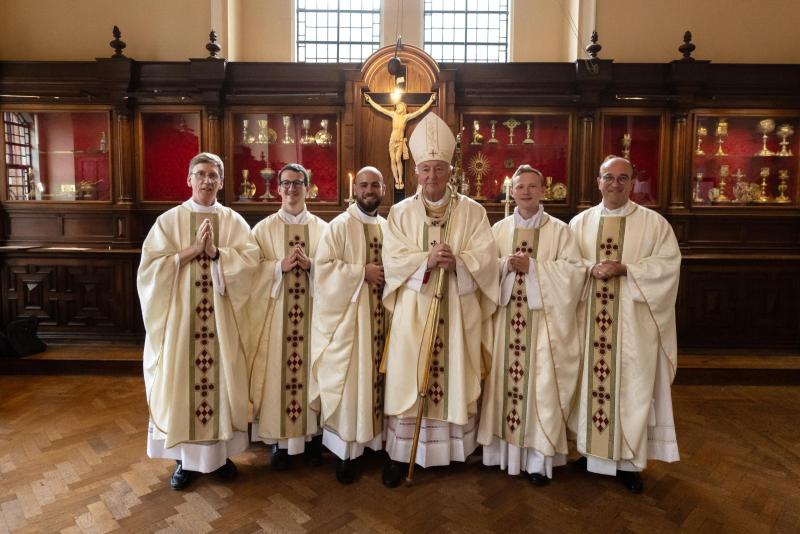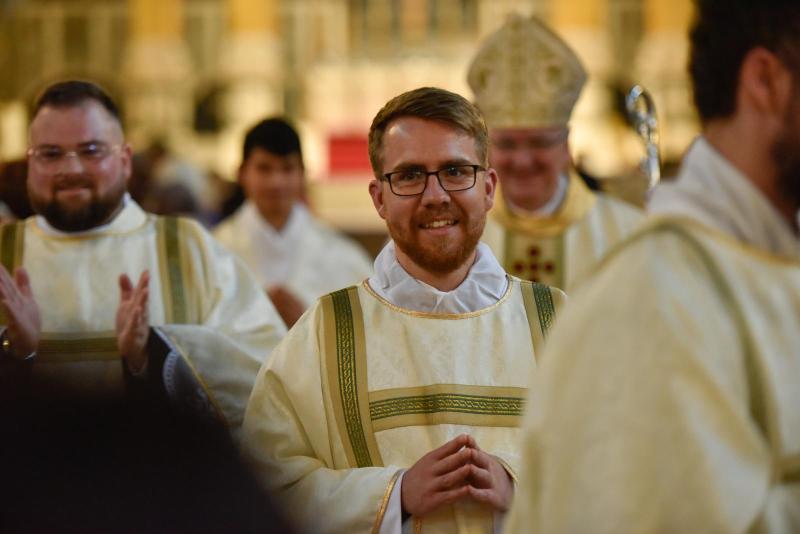This is an abridged version of a reflection originally given by Sr Ann Gray SSC during a pilgrimage walking in the footsteps of St Columban to Myshall, a small village on the slopes of Mount Leinster in Ireland. This year marks the 1400th anniversary of his death. His feast day is 23 November.
According to Cardinal Tomas O’Fiach, St Columban ‘came to be known as Ireland’s first European poet, scholar, abbot, preacher and co-founder of western monasticism’, not to mention ‘the associate of kings and correspondent of popes.’ He was the founder of great monasteries in Europe in such places as Luxeuil, Annegray and Bobbio, and he continues to be greatly revered on the continent.
In this picture, we see Columban on the move, full of restless energy and spirit of the missionary. Here he is, staff clasped firmly, his cloak flowing behind him and his arm stretched out in longing for what lies ahead. Each time I look at this image of Columban, I am reminded of Balaam in the Book of Numbers of whom it was proclaimed: ‘The oracle of Balaam son of Beor, the oracle of the man with far-seeing eyes, the oracle of one who hears the word of God, of one who knows the knowledge of the Most High. He sees what Shaddai makes him see, receives the divine answer, and his eyes are opened.’
For me, this is Columban of the far-seeing eyes, the man who yearned for something or someone, always beyond, the committed believer who was convinced of the urgency to preach the Gospel message and who was so convincing that others wanted to join him. Can we see ourselves in this?
It was Columban’s early monastic training which enabled him to sustain and nurture this energy, through the constant round of prayer, manual labour, study and mortification, and through following the practice of some of the monks to withdraw from time to time from community life and go ‘into the desert’ to some nearby cave or forest.
Jonas, who wrote the famous ‘Life of St Columban’, tells us: ‘At one time he was living alone in that hollow rock, separated from the society of others and, as was his custom, dwelling in hidden places or more remotely in the wilderness.’
In the natural beauty of Myshall, at the foot of Mount Leinster, where we believe Columban was born, we can understand how, when a piece of land in Bobbio was given to him, Cardinal Tomas O’Fiach said that this was ‘the sort of terrain after which the Irishman seemed to hanker – wild, well-watered, wooded and remote and where he was surely pleased to be moving once more from the affairs of kings and bishops to the solitude which he loved’.
And what of us? It has been said that the missionary is born in contemplation. Through such times alone with God, we listen to the word of God in scripture and nature and develop those far-seeing eyes so that we can see what Shaddai makes us see, receive the divine answer and allow our eyes to be opened. Then we can trust the words: ‘Do not worry about how to speak or what to say; what you are to say will be given to you when the time comes; because it is not you who will be speaking; the Spirit of your Father will be speaking in you.’
Strengthened by such times of solitude, we can each day respond to God’s call however it comes to us, and grow more and more deeply into the motto which St Columban and all of us strive to live: ‘Let us be Christ’s and not our own.’
